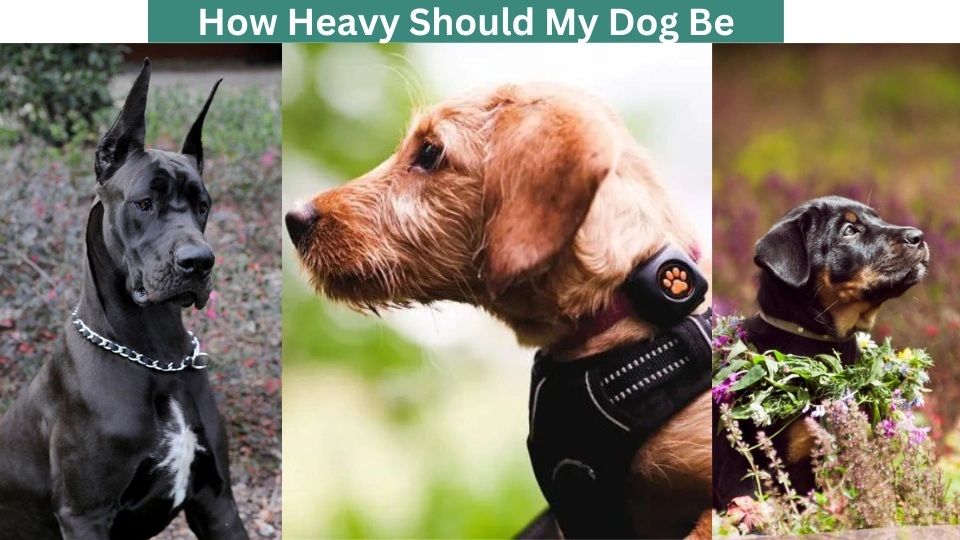Last Updated on March 7, 2024 by Aftab Tariq
How Heavy Should My Dog Be when they’re Fully Grown?
It’s essential to understand this, whether they’re a puppy or an adult. Knowing your dog’s expected size and weight is crucial before choosing a specific breed. Larger breeds need more space, while smaller breeds generally have longer lifespans.

This information also determines what you should feed your dog. Small breeds, typically 10kg or less, require fewer nutrients for growth compared to medium or large breeds.
However, large breeds, over 25kg, undergo rapid growth and require more energy. Therefore, they should be fed large breed dog food to support proper growth.
To address this issue, many dog food products include labeling indicating suitability for specific breed sizes, such as small, medium, large, or extra-large. Feeding a dog food intended for a different breed size can create nutritional imbalances, resulting in issues like obesity. Keeping a close watch on your dog’s weight can contribute to their longevity.
Therefore, it’s essential to be aware of your dog’s eventual size, allowing you to choose the right food to maintain their ideal and healthiest weight.
Dog Weight Chart kg

Dog Weight Chart by Age and Breed
Utilize a dog weight chart by breed to estimate your canine companion’s ideal weight range

How Much Should My Dog Weigh?
Each canine is unique, and some may not reach the size of others within the same breed, while others may surpass them.
However, two common methods can help estimate your dog’s eventual size:
- Assessing the size and weight of your puppy’s parents.
- Examining the average weight of adult dogs of the same breed and gender as your puppy.
If you lack information about your dog’s parents, especially for rescued dogs, using the first method may not be feasible. However, if you obtained your puppy from a breeder or an establishment with records, you may acquire information about the mother’s size and weight.
However, obtaining records about the father can be more challenging unless the pregnancy was planned. Nevertheless, most dogs tend to grow to the average size of others of the same breed, even without knowing the parents’ size.
Below is a table listing the typical adult weights for popular dog breeds in the UK, sorted by sex and determined by The Kennel Club. Keep in mind, several factors can affect a dog’s healthy weight. While some dogs naturally have more muscle mass and weigh more, others may be lighter but still be healthy.
If your dog’s weight differs from these averages but they seem healthy otherwise, they’re likely fine. However, for peace of mind, consider a check-up with your vet.
I am a dedicated content writer with more than five years of experience, particularly skilled in the art of storytelling. My writing journey commenced during my college years, where I pursued journalism and unearthed my talent for creating captivating narratives.


